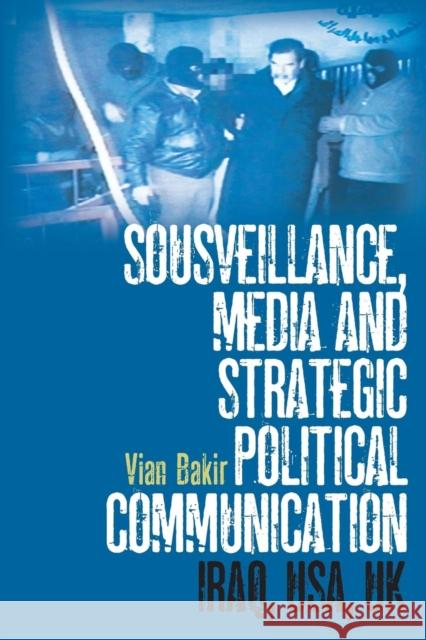Sousveillance, Media and Strategic Political Communication: Iraq, Usa, UK » książka
Sousveillance, Media and Strategic Political Communication: Iraq, Usa, UK
ISBN-13: 9780826430090 / Angielski / Miękka / 2010 / 256 str.
Sousveillance, Media and Strategic Political Communication: Iraq, Usa, UK
ISBN-13: 9780826430090 / Angielski / Miękka / 2010 / 256 str.
(netto: 211,26 VAT: 5%)
Najniższa cena z 30 dni: 143,72
ok. 16-18 dni roboczych.
Darmowa dostawa!
Fusing perspectives from politics, media studies and cultural studies, Sousveillance, Media and Strategic Political Communication offers insights into impacts on strategic political communication of the emergence of web-based participatory media ('Web 2.0') across the first decade of the 21st century. Countering the control engendered in strategic political communication, Steve Mann's concepts of hierarchical sousveillance (politically motivated watching of the institutional watchers) and personal sousveillance (apolitical, human-centred life-sharing) is applied to Web 2.0. Focusing on interplays of user-generated and mainstream media about, and from, Iraq, detailed case studies explore different levels of control over strategic political communication during key moments, including the start of the 2003 Iraq war, the 2004 Abu Ghraib scandal, and Saddam Hussein's execution in 2006. These are contextualized by overviews of political and media environments from 2001-09. Dr Bakir outlines broader implications of sousveillant web-based participatory media for strategic political communication, exploring issues of agenda-building, control, and the cycle of emergence, resistance and reincorporation of Web 2.0. Sousveillance cultures are explored, delineating issues of anonymity, semi-permanence, instanteneity resistance and social change.











